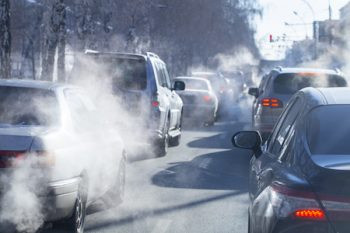The long-term effects of air pollution include respiratory diseases and lung cancer, and the worst part is that in a city like Delhi. Our children are growing up with poor lung conditions which will result in severity of lung disorders and make India an unhealthy nation. Our governments are not doing enough to combat the growing air pollution levels, Dr Rakesh K Chawla, the chairman of Pulmonology and Critical Care at Jaipur Golden Hospital, said air pollution has short-term as well as long-term effects on health
New Delhi:
Rise in air pollution is linked to growing respiratory ailments in India, experts have said and urged the government to bring a policy limiting the number of cars per family and restricting the number of vehicles plying on roads at a time.
On the sidelines of the 25th National Conference on Pulmonary Diseases (NAPCON-2023), organised by the Indian Chest Society here, Dr Rakesh K Chawla, the chairman of Pulmonology and Critical Care at Jaipur Golden Hospital, said air pollution has short-term as well as long-term effects on health.
”The immediate effects are in the form of irritation in the eyes and throat. Also, there is an increase in the severity of asthma attacks,” said Dr Chawla, who is also the organising chairman of NAPCON-2023.
The conference was organised to discuss air pollution and diseases caused by it as well as the advancements in the field of pulmonology.
Dr Chawla said the long-term effects of air pollution include respiratory diseases and lung cancer, and the worst part is that in a city like Delhi ”our children are growing up with poor lung conditions which will result in severity of lung disorders and make India an unhealthy nation”
”Our governments are not doing enough to combat the growing air pollution levels. It should bring a policy to limit the number of vehicles a family should have and also restrict the number of vehicles plying on roads at a time. Also, carpooling should be promoted,” he said.
On October 5, about 18 hospitals came together to train 1,800 such medical students and nurses on the latest pulmonology and interventional techniques, making it the largest one-day training programme, he said.
NAPCON’s emphasis on fostering interdisciplinary collaboration is one of its hallmarks, making it a melting pot of ideas where professionals exchange experiences and collaborate on advancements with the potential to revolutionize patient care. Dr D J Roy, Immediate Past-President of the Indian Chest Society, commented, ”Lung diseases are a significant public health concern in India, with a high prevalence of respiratory infections, COPD and lung cancer.
NAPCON plays a crucial role in addressing these issues by showcasing cutting-edge research findings and innovative treatment approaches.” Dr Raja Dhar, an expert on the chronic lung condition Bronchiectasis, highlighted the importance of awareness and early detection in combating this common lung disorder in India.
”Post-Covid there is a great need felt by the pulmonologist society to make nurses and technicians an integral part of all training programmes and continuing nursing education to keep them up to mark on the latest advancements in respiratory medicine,” the doctor said.
”Post-Covid there is a great need felt by the pulmonologist society to make nurses and technicians an integral part of all training programmes and continuing nursing education to keep them up to mark on the latest advancements in respiratory medicine,” the doctor said.

